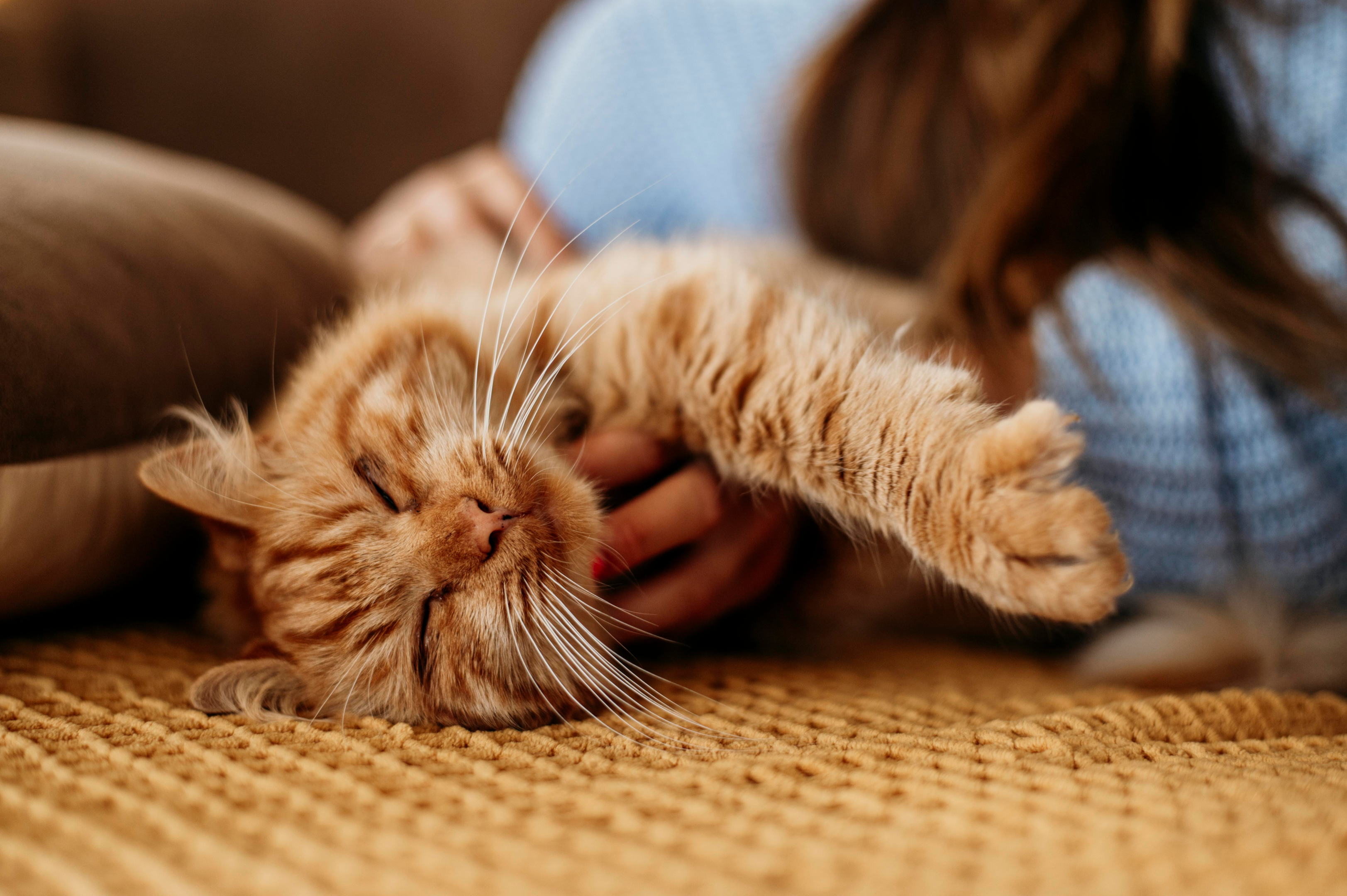
Ever wondered why your usually cool cat is suddenly sticking to you like glue and meowing up a storm? It's a bit puzzling, right?
Well, don't worry, you're not alone! Cats have a funny way of expressing themselves, and when they get clingy and chatty out of the blue, it can leave cat owners scratching their heads.
In this article, we'll stroll into the world of cat behavior to find out why your furry friend might be acting this way. From wanting extra love to maybe having a little health hiccup, we'll break down the possibilities so you can keep your cat happy and healthy.
So, let's get to the bottom of your cat's new behavior.
Signs of a Clingy Cat
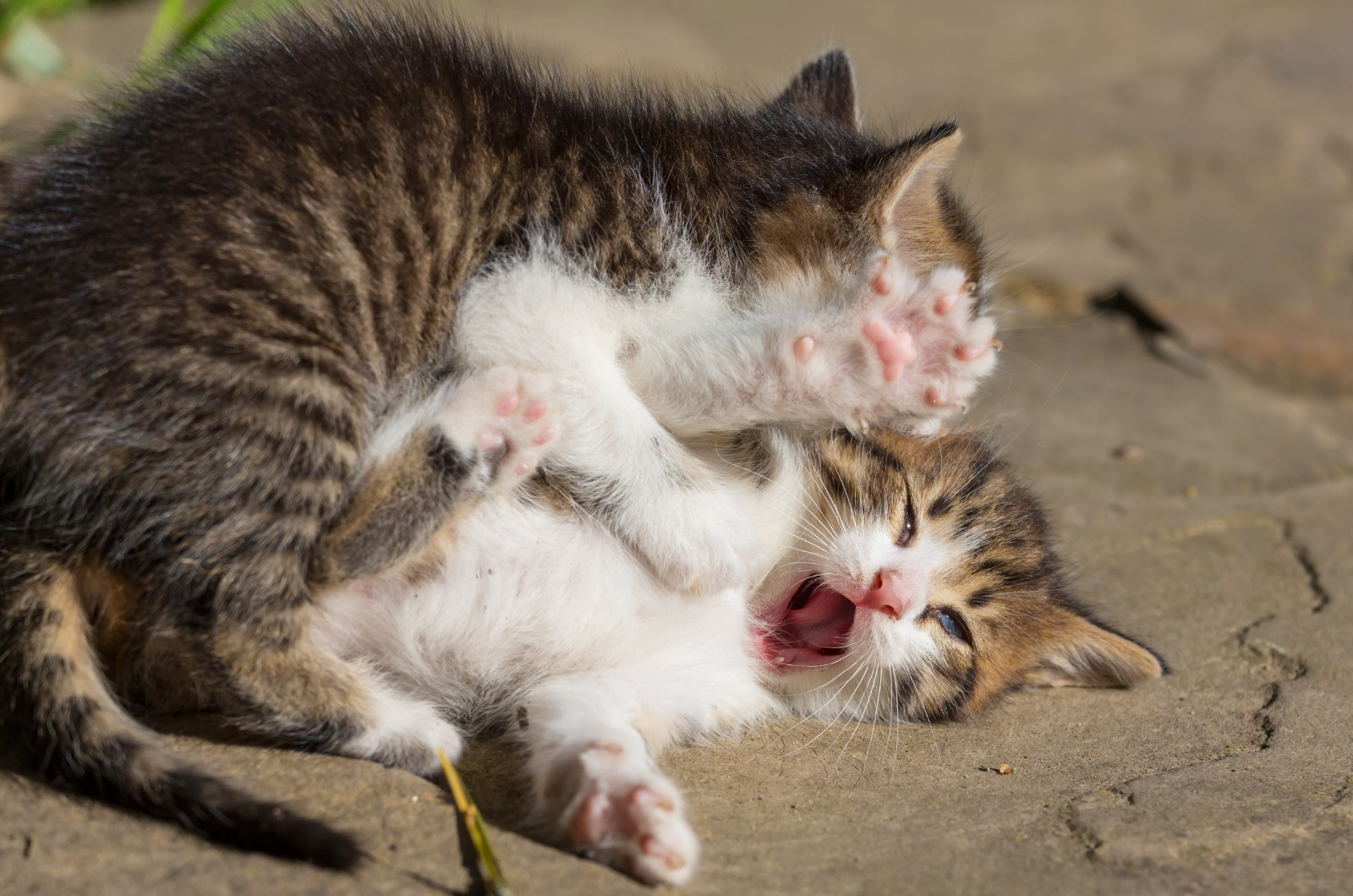
Cats, known for their aloof and independent nature, can surprise their owners with sudden clinginess. Let's explore the common signs that may indicate your beloved pet has crossed the threshold into the needy cat category.
-
Shadowing Your Every Move
If your cat suddenly seems to be your constant companion, following you from room to room, it might be more than a simple desire for company. While having a furry sidekick can be fun, excessive following, becomes a tripping hazard. And this is a sure sign of needy behavior.
-
Incessant Vocalization
A clingy cat is often quite vocal, expressing their discomfort or need for attention through incessant meowing. This is very common in a female cat. This behavior intensifies when you leave a room or close a door as they desperately seek to maintain a constant connection with you.
-
Attention-Grabbing Techniques
Clingy cats are not subtle about their desire for attention. They may resort to clawing at walls and doors or any other attention-seeking behavior, making their presence known to prevent you from leaving.
-
Relentless Affection
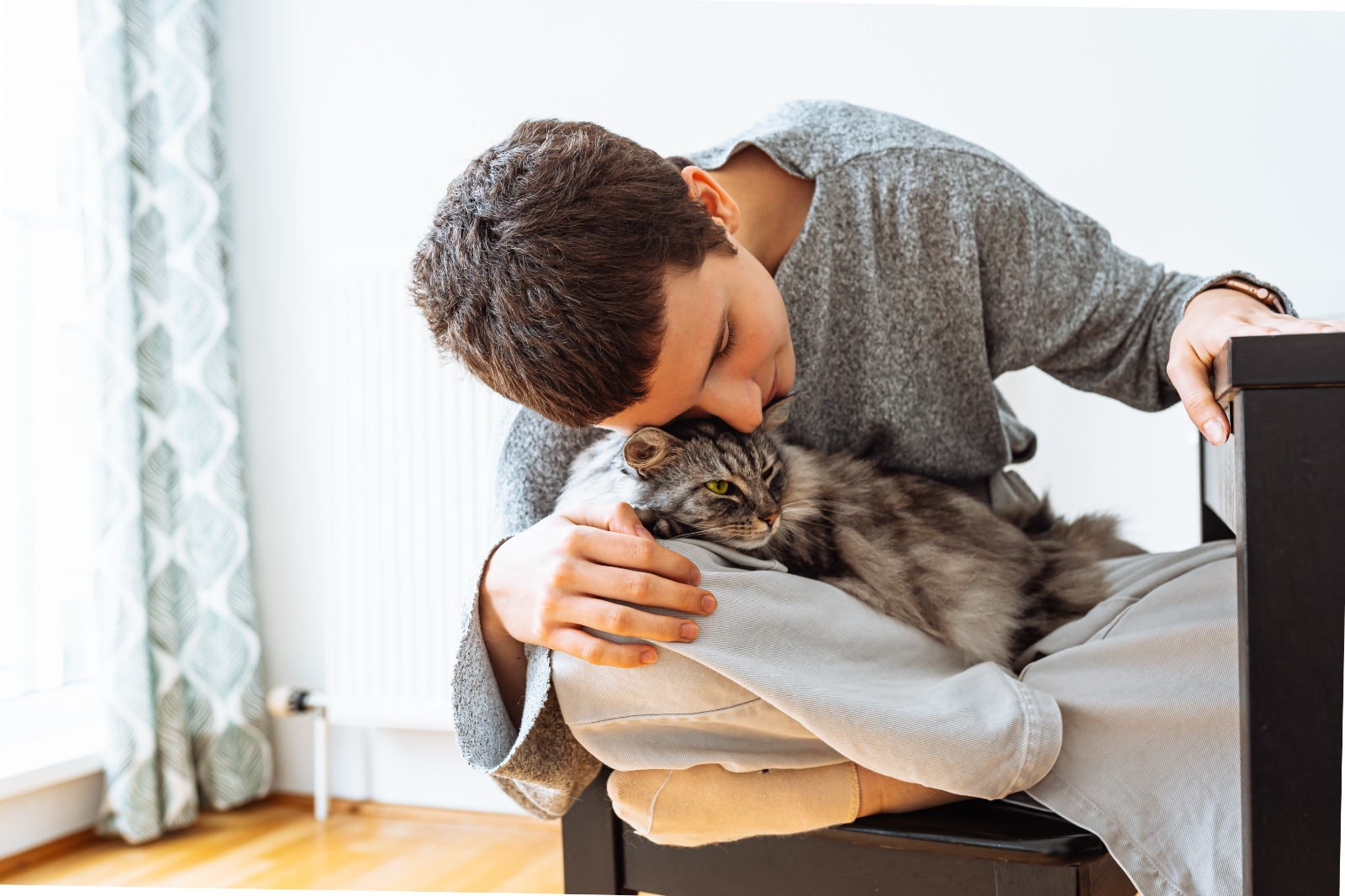
While many cats enjoy occasional cuddles, a clingy cat takes it to another level. They consistently rub themselves against you, seeking physical contact and reassurance. Their attachment goes beyond a more affectionate cat's simple desire for touch; it's a constant need for your presence.
-
Reluctance to Let You Leave
Clingy cats might display distress when you attempt to leave the house. They resist your departure, making it clear that they prefer your company over solitude. This behavior can be endearing but may also indicate a deeper emotional need.
-
Demanding Petting Sessions
A clingy cat demands attention at all hours of the day. They insist on being petted, not just when it suits you but whenever the mood strikes them. This constant need for physical reassurance is a key characteristic of clinginess.
-
Sitting on Belongings or You
Clingy cats tend to express their attachment by sitting on whatever you're using, or even on you. This behavior is a way for them to maintain physical contact and reinforces their need for your presence.
-
Food and Drink Dependency
A clingy cat may take their need for your presence to the dining table. They might refuse to eat or drink unless you're around, emphasizing their emotional dependencey on your company.
-
Excessive Scratching and Kneading
Beyond playful behavior, clingy cats might exhibit excessive scratching and kneading to convey their emotional neediness. This physical contact provides them with comfort and security, but it can turn into a destructive behavior if left unaddressed.
It's important to note that a clingy cat is different from a demanding one. While the former lacks the confidence to be independent and seeks constant emotional reassurance, a demanding cat can be more assertive, using various tactics to manipulate situations. Understanding these signs can help cat owners navigate their feline companions' needs more effectively, fostering a balanced and fulfilling relationship.
Reasons Why Your Cat Can Be Clingy
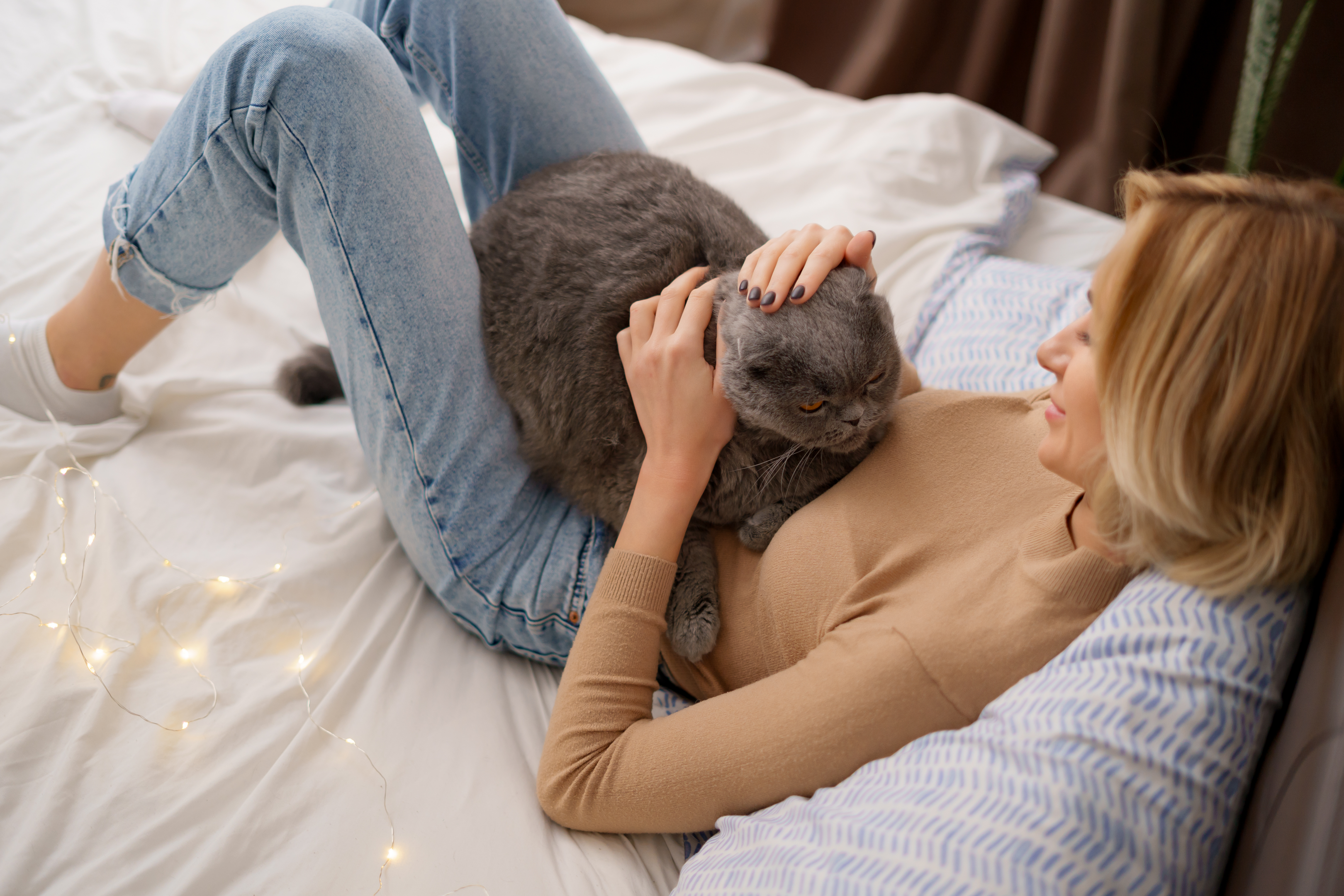
Let's look into the underlying causes of the clingy cat behavior:
-
Lack of Confidence
When a cat doesn't feel sure of itself, it struggles to be independent. Confidence is the key to freedom for a cat. If they're not comfortable being alone or finding things to do on their own, they might try hard to always stick by your side.
This happens because they feel a bit unsure or nervous when left alone. To help your cat be more independent, you can use cat toys and create a safe space for them. Building their confidence in these simple ways can make them feel better and less clingy.
-
Stress or Anxiety
When it comes to anxious cats, various factors can trigger clingy behavior, often rooted in feelings of anxiety or stress. Your feline friend may seek comfort by sticking close to you or hiding by your side when they feel scared or uneasy.
This anxious behavior might occur during thunderstorms, in the presence of unfamiliar people, or when other pets or people around make them nervous. It could also be linked to discomfort or unfamiliarity in their environment. Observing when your cat becomes clingy can help pinpoint specific triggers.
Instead of keeping them close, providing a safe space, such as a calming cat bed, litter box, or hideaway, can offer them a secure retreat from unsettling situations.
-
New family member
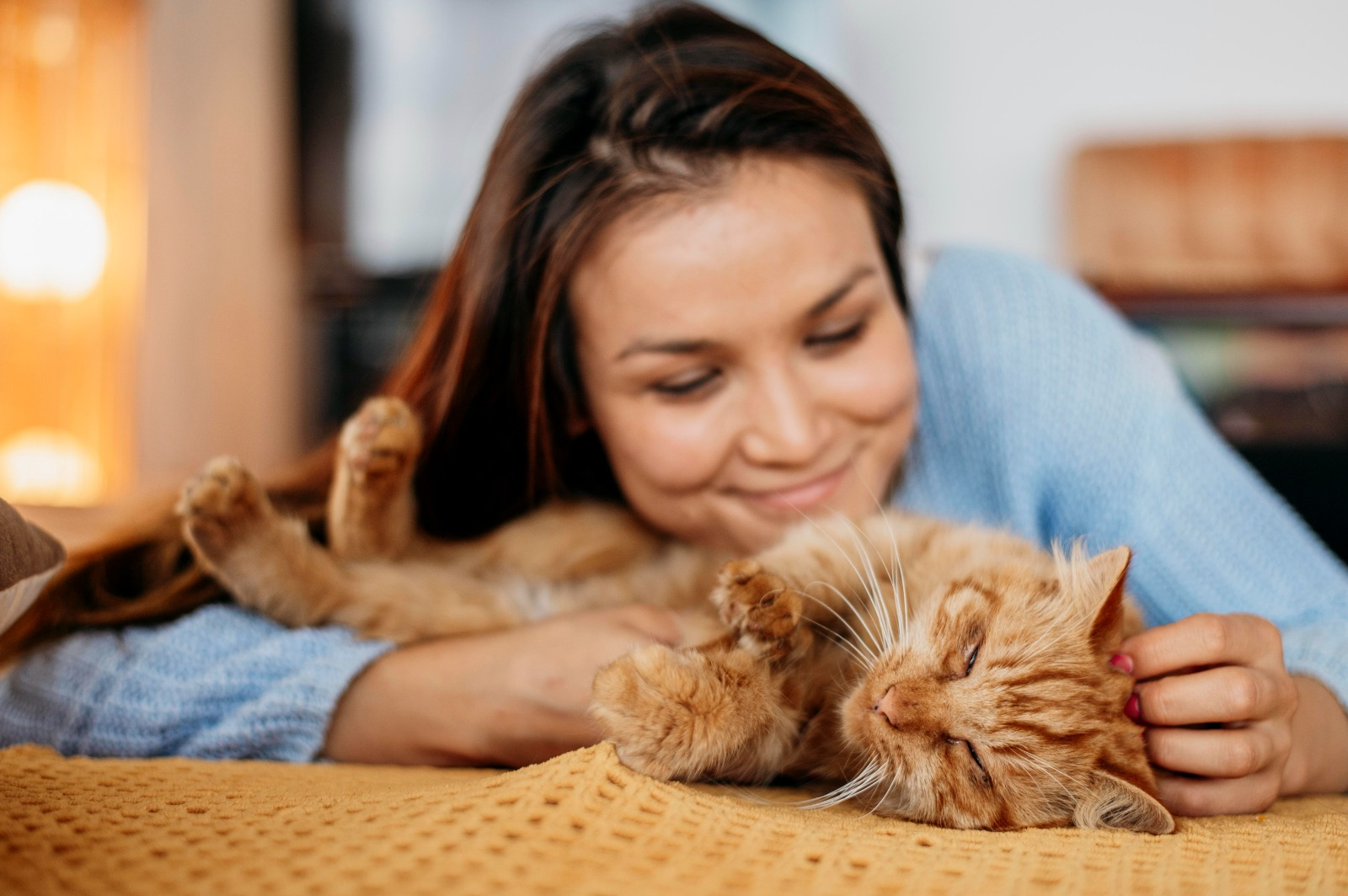
Cats find comfort in routines and familiar faces, feeling secure when their days unfold predictably. A new pet or family member, whether a human or another pet, can disrupt this sense of normalcy for your cat. Such changes may induce stress in felines, requiring a period of adjustment to the altered environment.
-
Boredom
Cats need playtime and things to keep their minds and bodies busy. If they don't get enough of this, they might act out or become clingy to tell you they're bored.
Just like us, a happy cat is a healthy cat. If you're busy or want your cat to play on their own, you can give them interactive toys, a cat tree, or a special area where they can have fun. This keeps them active and happy, making them a cheerful and healthy part of the family.
-
Illness
If your cat's behavior suddenly changes, a medical issue could be the cause. Taking your cat to the vet is important if you observe behavioral or physical changes. A vet can identify the health issues or guide you to the right professional, such as a Cat Behaviorist if needed. Early detection along with proper care are crucial for your cat's well-being.
-
Early trauma
If your cat went through a tough time when they were young, it can affect their behavior. Being left alone or taken away from their mom and siblings too soon can make them anxious, and they find it hard to adapt. The same goes for cats rescued from an abusive home; they might show similar behaviors due to their past experiences.
-
Separation anxiety
A cat might become excessively clingy because of separation anxiety or nervousness. While cats generally don't develop separation anxiety as intensely as some other pets, sensitive cats can indeed show signs of it through clinginess.
To avoid separation anxiety in cats, spending time with them when they are young is helpful. Cats with separation anxiety often feel insecure or unsafe, especially in their early days. Regular playtime with your cat can go a long way in preventing this problem.
How to Reduce Your Cat's Clinginess?
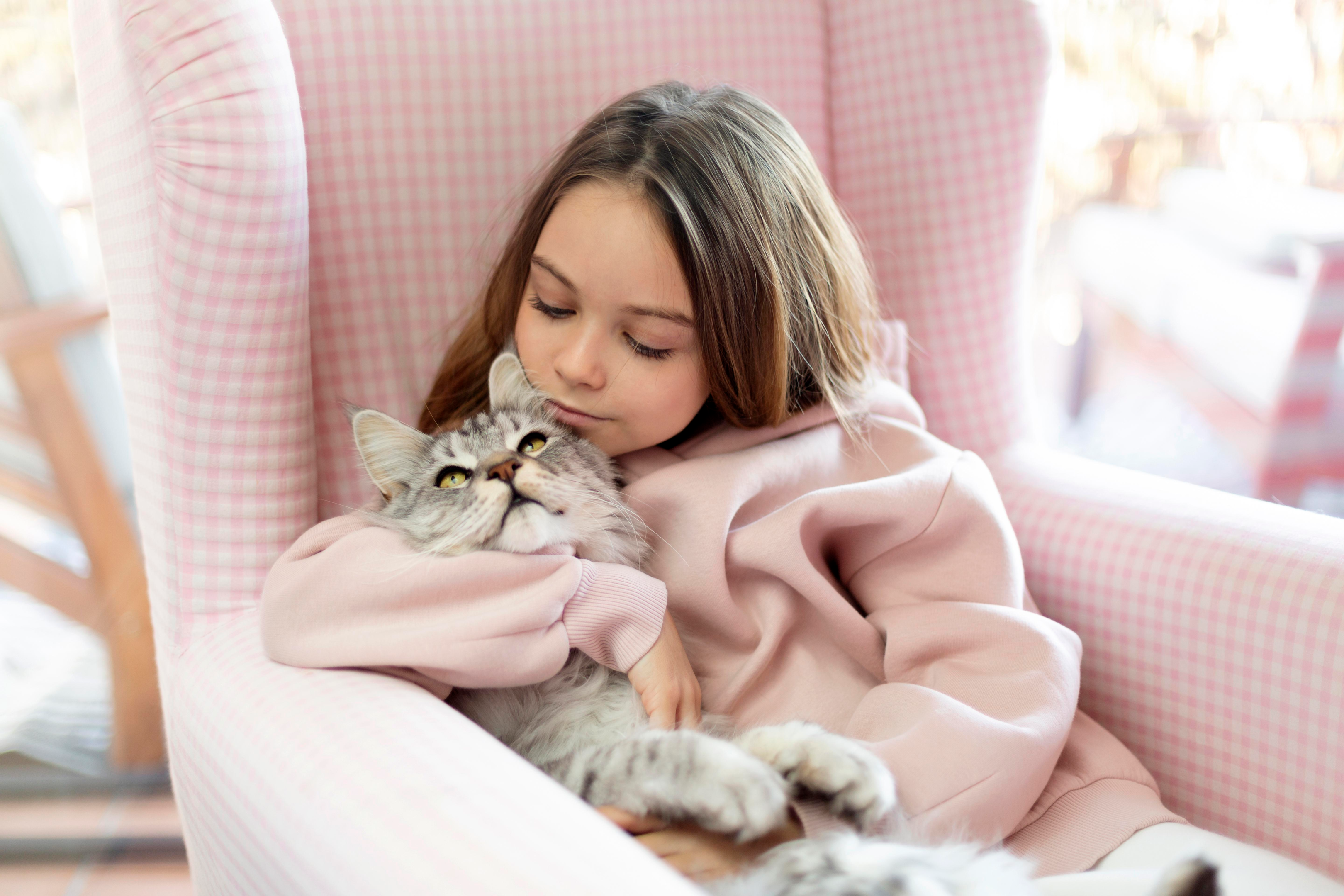
While our feline friends bring us joy with their cuddly nature, there are moments when we need to concentrate on other tasks. If your cat is being extra clingy due to stress or boredom, there are strategies to ease this behavior. With some patience and the right techniques, you can reduce your cat's need for constant attention. Once you've confirmed there's no health issue:
- Refrain from giving attention when your cat behaves in a way you don't want. This helps your cat understand that certain actions won't lead to attention.
- Physical punishment can make things worse and harm your relationship with your cat. It's ineffective to correct behavior and may cause fear or aggression.
- When your cat is calm and happy, reward them with praise or treats. This encourages the behavior you want and reinforces a positive connection.
- Stick to a daily schedule for feeding and playtime. Consistency helps alleviate stress and reduces attention-seeking behaviors.
- Keep your own cat entertained and mentally and physically stimulated to combat boredom. Use toys and treats, and create a routine that keeps them engaged.
If these strategies don't bring about positive changes, seeking assistance from a certified feline behavior specialist is a good idea. They can delve deeper into your cat's behavior, identifying potential stressors or triggers requiring more focused attention.
Working collaboratively with a specialist ensures that you're addressing the root causes of your cat's clinginess, promoting a happier and more balanced feline companion as a responsible cat owner.
Final Words
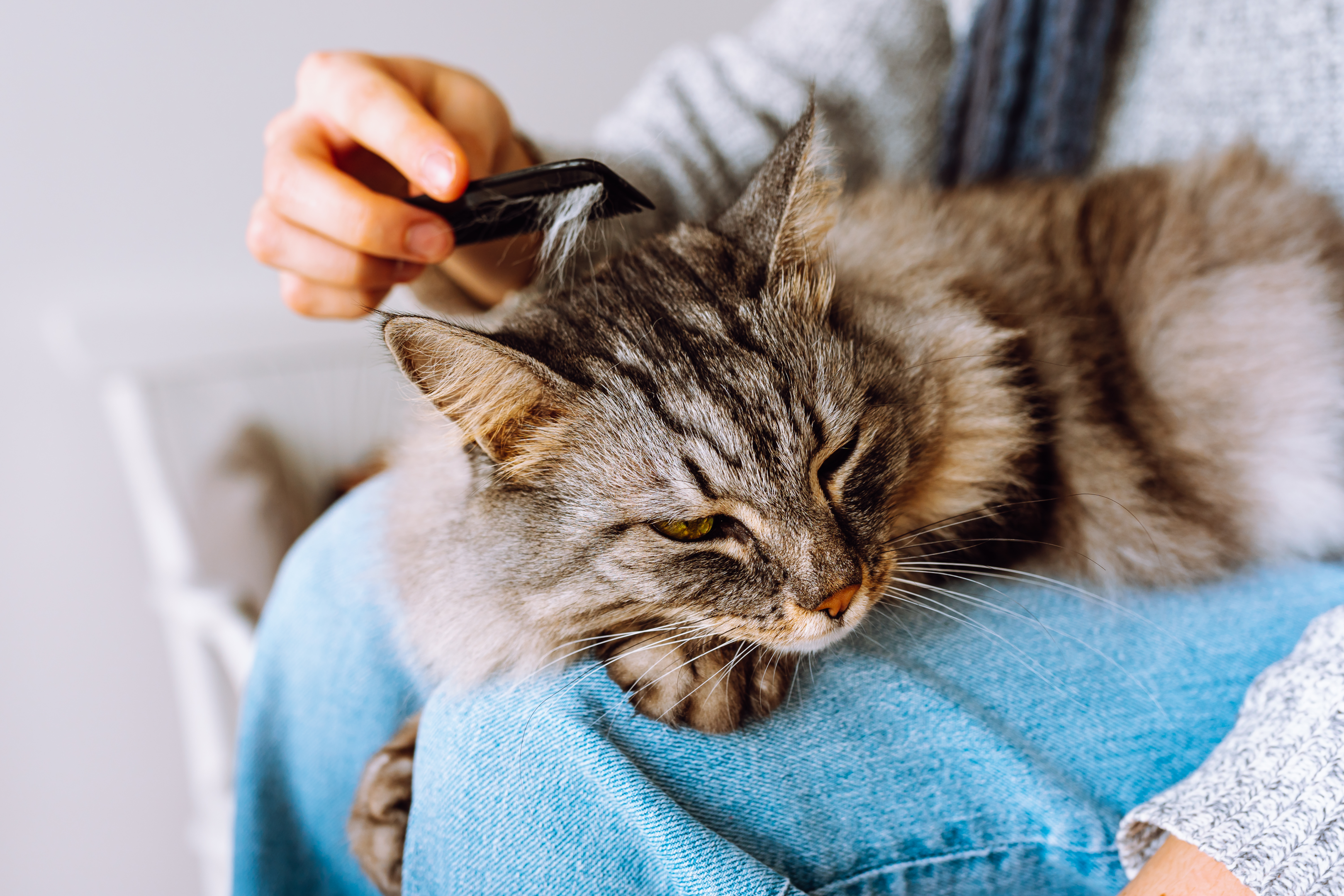
In wrapping up our exploration into the reasons behind your cat's clinginess and vocal behavior, it's clear that our feline friends have unique ways of expressing themselves. Whether it's due to feeling stressed, a bit bored, or past experiences, understanding these underlying factors is important in nurturing a positive relationship with your affectionate cat.
We've uncovered practical approaches to address their clinginess, focusing on the importance of mental and physical stimulation, maintaining a consistent daily routine, and refraining from negative responses. These simple steps can make a huge difference in easing your cat's need for constant attention and quiet their excessive vocal expressions.
However, if your cat's clinginess persists despite your efforts, seeking guidance from a certified feline behavior specialist is a valuable option. These experts can offer personalized insights and solutions to address specific issues your cat may be facing.
The key takeaway is that building a strong connection with your cat involves patience, observation, and responsiveness to their unique personalities.
FAQs
When should I seek professional help for my cat's behavior?
If your overly clingy cat stays the same or if you notice concerning changes in their behavior, consulting a veterinarian or a certified feline behavior specialist is recommended to ensure a comprehensive understanding and resolution of the issue.
Is it normal for cats to be vocal?
If your cat so clingy, then they will be vocal. Some vocalization is normal for cats, but sudden or excessive meowing may signal stress, discomfort, or a desire for attention. Understanding the reason for their vocalizations is crucial in addressing the underlying issue.


0 comments